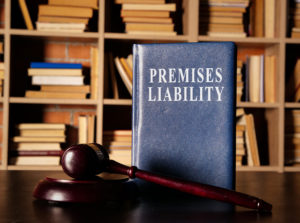
To learn more about premises liability in the State of Florida, we will get into more details below.
Defining Premises Liability
Premises liability is involved in personal injury cases that occur due to unsafe conditions caused by the property owner’s negligence. In Florida and across the U.S., property owners are legally required to maintain their properties and ensure a hazard-free environment, to protect the safety of their visitors.
For the plaintiff to win a premises liability case, they must first furnish evidence of negligence on behalf of the property owner. This means that the property owner didn’t maintain the property; however, the plaintiff must also prove that the owner was aware of the property’s unsafe condition and didn’t take reasonable action to fix the problem.
In the State of Florida, to win a premises liability case, you must first be certain of these four elements of a negligence action:
- The property owner owed you a legal duty (usually a duty of care)
- The property owner breached a legal duty
- You sustained damages through no fault of your own
- The property owner’s breach of duty caused your injuries
Without these four elements, plaintiffs will not succeed in a premises liability claim.
Types of Premises Liability Cases
Common situations that can lead to premises liability cases include:
- Dog and animal bites
- Unsafe conditions on the premises
- Negligent property maintenance
- Inadequate building security
- Swimming pool injuries
- Flooding or leaks
- Slip and fall cases
- Fires
- Chemicals or toxic fumes
- Children on the premises
At Weldon & Rothman, PL, our experienced personal injury attorneys will guide you through the process of proving a premises liability claim in the State of Florida. Reach out to us today to schedule a free case evaluation!
